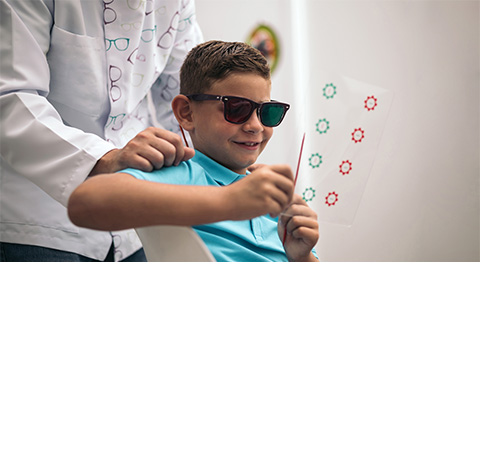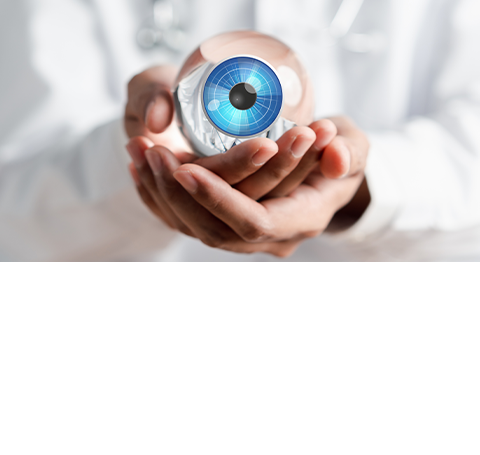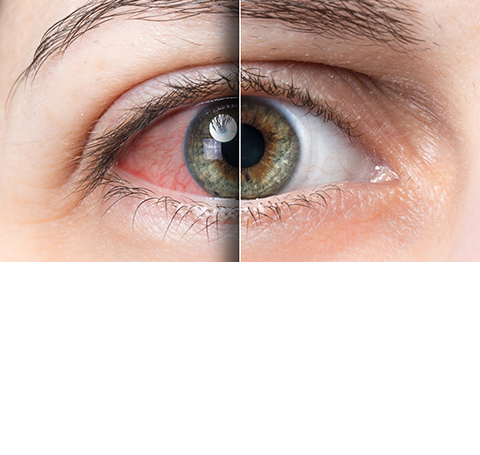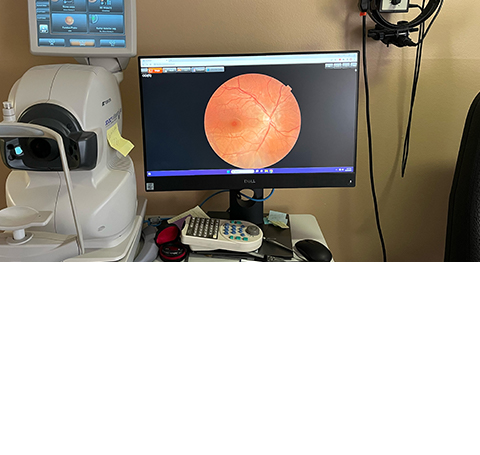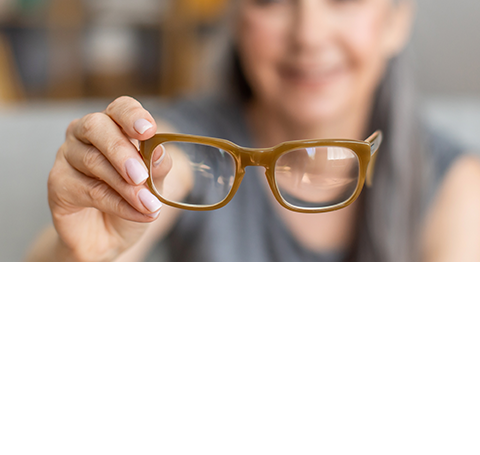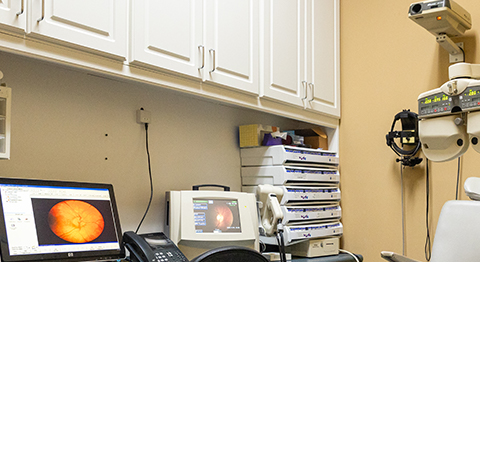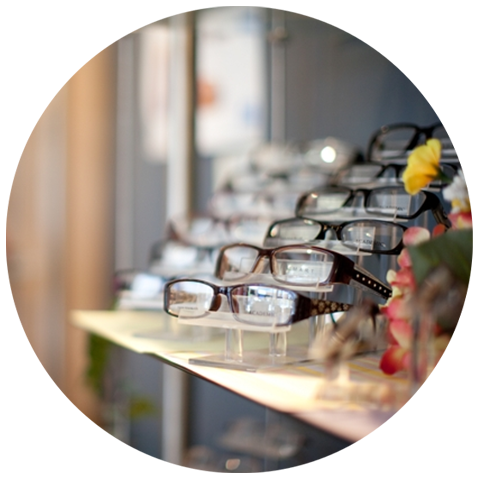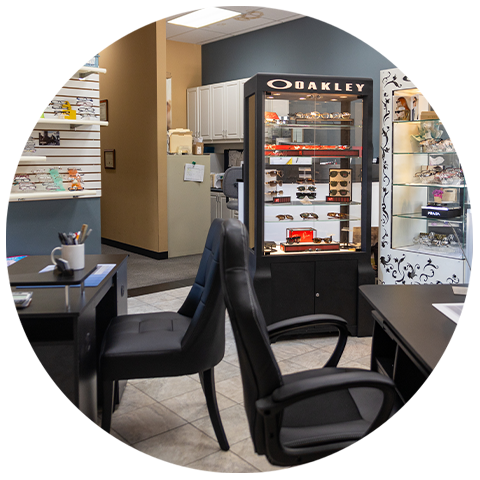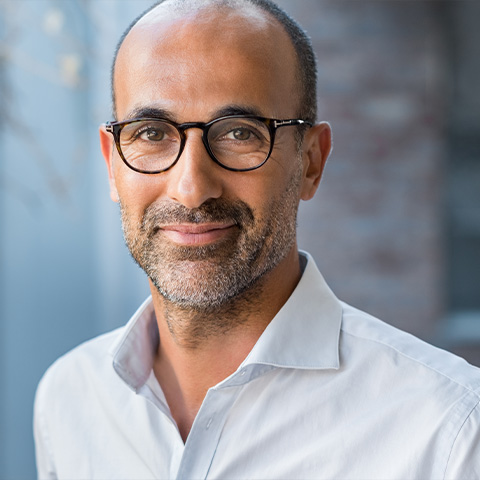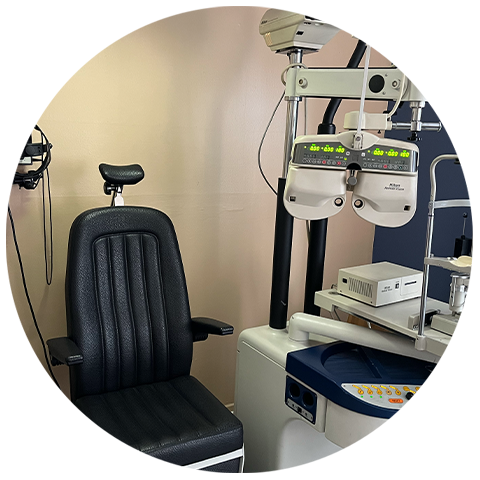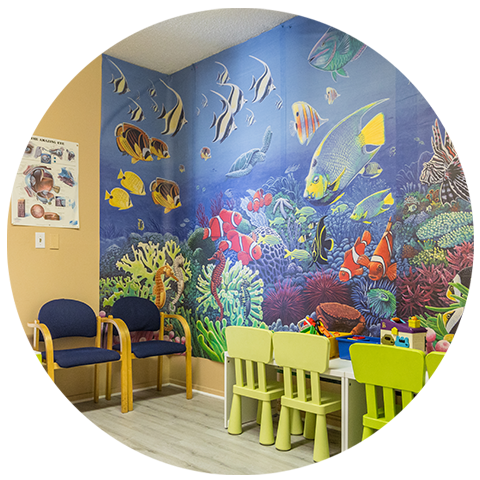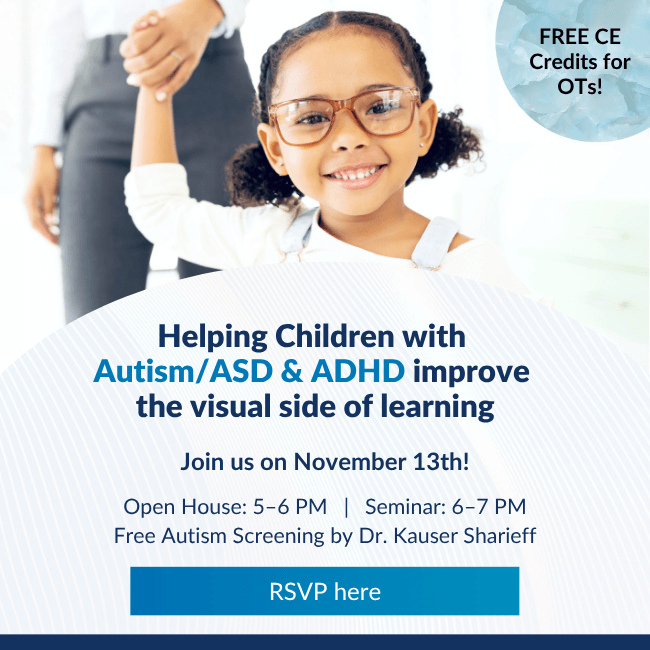What Is Myopia Management?
Nearsightedness, or myopia, is a common vision problem often detected in children during their early school years.
With myopia, you can see objects up close just fine. But things get blurry when they get farther away, like grocery aisle markers or the front of a classroom.
Nearsightedness is progressive, meaning your child’s vision can worsen throughout their school years and into early adulthood.Myopia management is a personalized program to help slow myopia progression and safeguard your child’s future eye health. Schedule your child’s eye exam today.
Book Appointment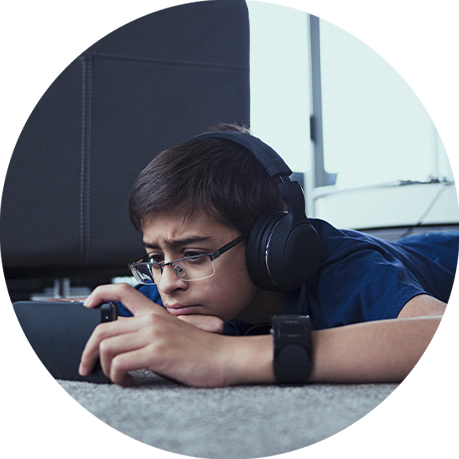

What Causes Myopia?
Myopia occurs when the eye grows too long to focus light correctly, either because the front of the eye (cornea) is too steep or the shape of the eye is stretched out like a football instead of a baseball.
A child is more likely to develop myopia if one of their parents has it, if they spend a lot of time doing close-up activities (like reading or computer work), or if they don’t spend enough time outdoors.
Nearsightedness Is an Epidemic
Myopia is becoming increasingly prevalent, affecting about 1 in 3 kids. And that number keeps on growing. Myopia is considered an epidemic, with health experts predicting that by 2050, half the global population will have myopia.
As a result, more and more children will rely on glasses or contact lenses for daily life. Depending on its severity, myopia can cause different levels of vision impairment.
Some kids may only need glasses for activities like watching TV. Others may have high prescription needs and need glasses all the time. A higher prescription may also disqualify them from corrective surgeries like LASIK later in life.
Book Appointment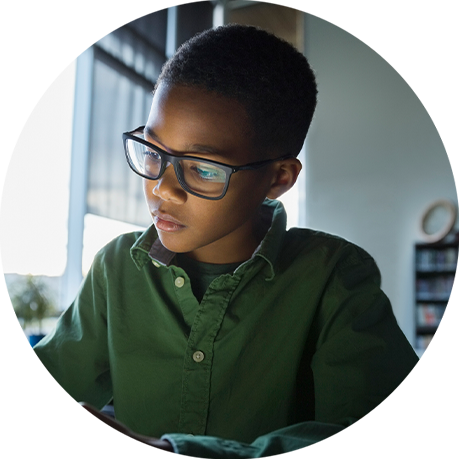

Managing Myopia Early Matters
During childhood, blurry vision can make it challenging for kids to keep up in school or perform well in sports.
But myopia causes the eyes to keep growing, which means the eye’s tissues stretch and weaken over time, increasing the risk of serious eye conditions like cataracts, glaucoma, and retinal complications in adulthood.
These risks are why it’s crucial to intervene early. By managing myopia in childhood, we can help prevent risks affecting your child’s eye health and quality of life.
Multifocal Contact Lenses
Soft multifocal contact lenses use a specialized lens design that can correct blurry vision and help slow myopia progression.
Imagine shining a flashlight and placing a ball in front of it. Most of the light will hit the ball directly, while some light scatters around the ball’s sides (the peripheral).
Standard lenses can focus most of the light accurately, but the remaining unfocused light in the periphery can trigger further growth. Multifocal contact lenses redirect this peripheral light, signaling the eye to stop growing.
Orthokeratology (Ortho-K)
Orthokeratology (ortho-k) uses custom rigid gas-permeable contact lenses that reshape the cornea overnight, correcting blurry vision and also slowing myopia progression by 50%.
The cornea directs light toward the back of the eye, to the retina. But in an eye with myopia, light is focused behind the retina. Ortho-k lenses flatten the cornea to shift the focal point back onto the retina to improve vision.
Your child wears ortho-k lenses while they sleep and removes them in the morning. They can enjoy a glasses and contacts-free day by consistently wearing these lenses at night.
Atropine Eye Drops
Low-dose atropine eye drops dilate (enlarge) the pupil, temporarily halting the eye’s focusing mechanism. This relaxation can prevent a feedback loop that tells the eye to keep growing.
Excessive focus on close distances can cause eye fatigue and contribute to myopia. Imagine holding a pushup position for hours and the relief when you can finally lie down. Atropine can help the eye relax and recover from fatigue.Studies have shown that atropine can slow progression by 30–50%. Atropine is used once daily before bed.
MYAH for Measuring Axial Length
MYAH from Topcon measures your child’s axial length, the distance from the front to the back of the eyeball. Excessive elongation of the eyeball is a key factor in myopia progression. By regularly monitoring axial length with MYAH, our team can:
- Assess your child’s risk of developing myopia
- Track any changes in axial length over time
- Make informed decisions about different myopia management strategies
MYAH goes beyond measurement. It incorporates built-in normative growth curves for axial length, allowing us to compare your child’s data with established benchmarks.
Take Our Myopia Management Quiz
Get started on learning more about your child’s myopia. Take our myopia risk assessment quiz today.
Let’s Work Together to Protect Your Child’s Vision
Your child’s vision is vital for learning and experiencing the world around them. We’re here to help give them their best chance to safeguard their vision.
Schedule your child’s eye exam today, and let’s get started on their personalized myopia management plan.
Book AppointmentVisit Our Locations
Tustin
- Phone: 657-900-2115
- Fax: 714-996-6212
- Email: [email protected]
- 17411 Irvine Blvd Suite D
- Tustin, CA 92780
Hours
- Monday: 3:00 PM – 7:00 PM
- Tuesday: 10:30 AM – 6:00 PM
- Wednesday: 3:00 PM – 5:00 PM
- Thursday: 12:00 PM – 7:00 PM
- Friday: 11:00 AM – 6:00 PM
- Saturday: 10:00 AM – 2:00 PM
- Sunday: Closed
Yorba Linda
- Phone: 714-996-6210
- Fax: 714-996-6212
- Email: [email protected]
- 17674 Yorba Linda Blvd
- Yorba Linda, CA 92886
Hours
- Monday: 10:00 AM – 6:00 PM
- Tuesday: 10:00 AM – 6:00 PM
- Wednesday: 10:00 AM – 1:00 PM
- Thursday: 10:00 AM – 2:00 PM
- Friday: 10:00 AM – 6:00 PM
- Saturday: Closed
- Sunday: Closed
Reshaping Optometry Through Technology
Advancements in research and technology have made significant changes to optometry and vision therapy. At Vision Performance Optometric Center, we stay up-to-date with industry advancements to provide our patients with effective treatments. Watch the video below to see how we use these methods in action.
Our Services
Our Brands






